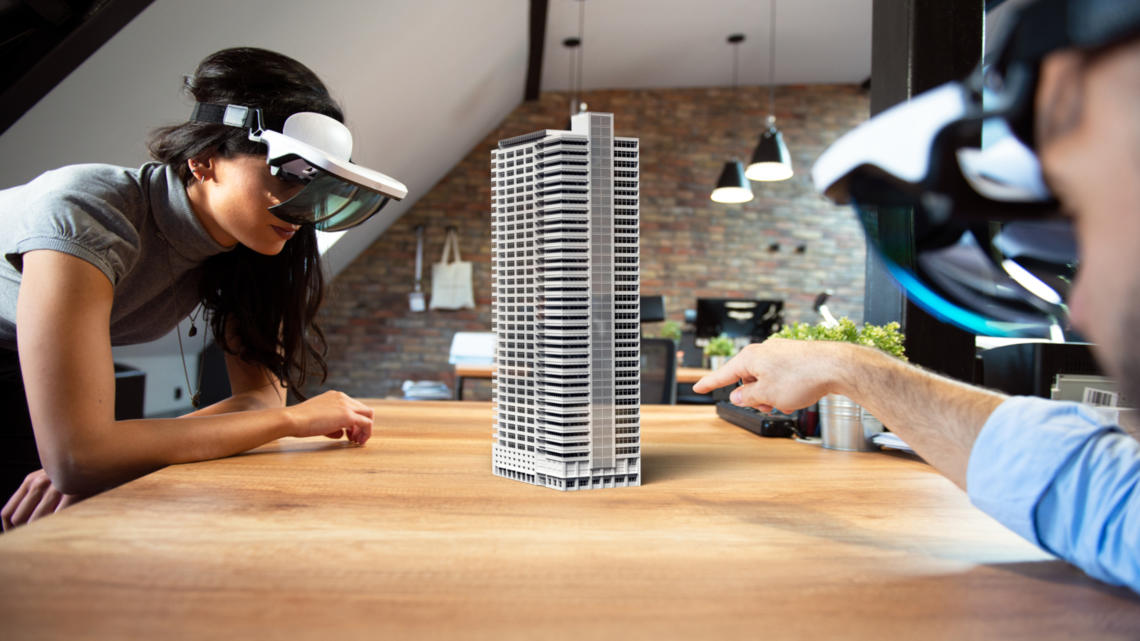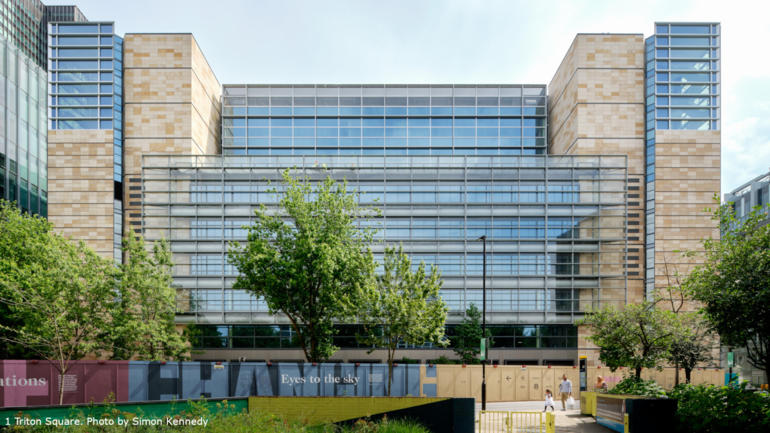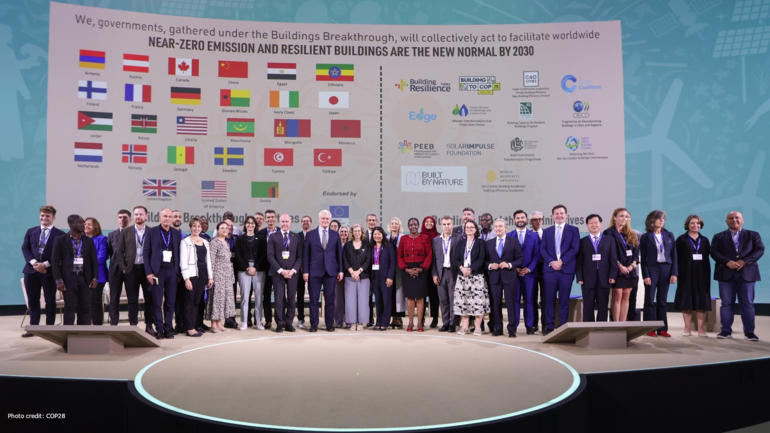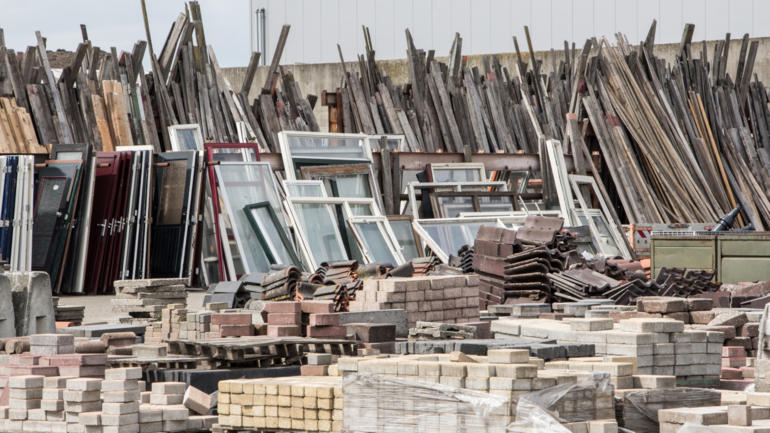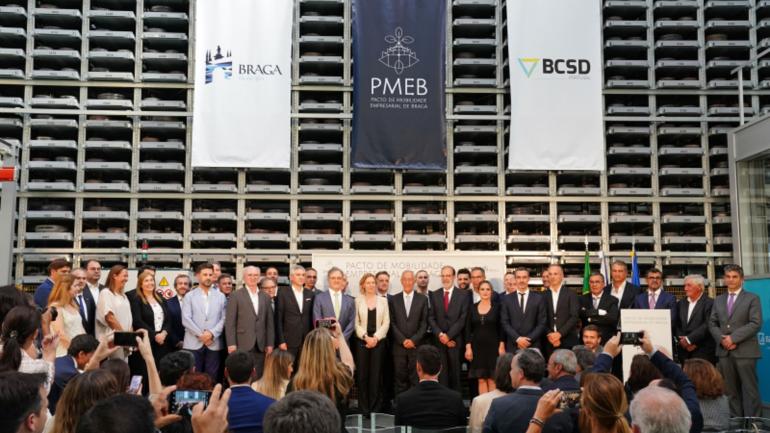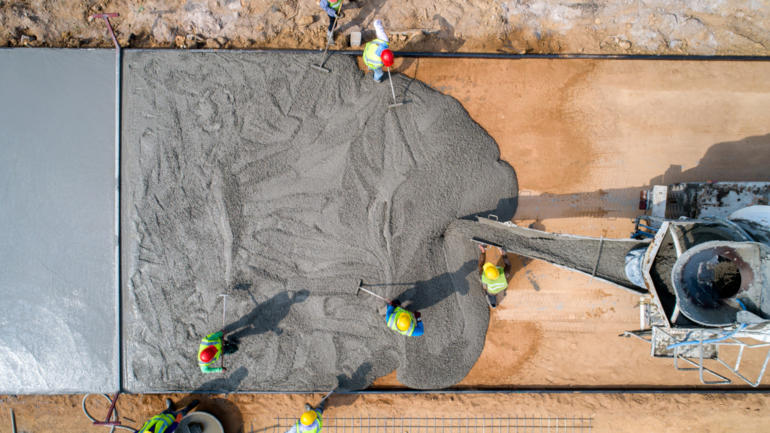Geneva, 4 February 2021 – The World Business Council for Sustainable Development (WBCSD) today released a report demonstrating the critical role of digitalization in establishing sustainable practices in the buildings and construction sector. Digitalization can improve sustainability performance and help develop new processes, services and markets, but despite the promising benefits, the sector has been slow to fully adopt emerging digital technologies. The report, Digitalization of the built environment: Towards a more sustainable construction sector, offers a set of recommendations at company and sector levels for accelerating the deployment of digitalization.
As a major contributor to societies’ carbon footprints, the built environment needs to shift toward sustainability to prevent an exacerbation of the climate crisis. In the coming decades, global population growth and urbanization will instigate a massive growth in urban infrastructure. Sustainable practices are key prerequisites to ensure business continuity.
Developed by WBCSD in collaboration with Arcadis - with the participation of 14 other companies and one foundation – the report shows that digitalization can help ensure a future-proof sector by supporting actors across the value chain to increase productivity and transparency while reducing emissions, resource consumption and costs. Digitalization can unlock great value by enabling collection, processing, analysis and disclosure of large and complex sets of data within and between companies. In the UK alone, it is estimated that an increased exchange of data could deliver an additional GBP £7 billion per year in the infrastructure sector.
Based on interviews with companies who have already embarked on a digital transformation, the report offers insights into challenges associated with digitalization that the buildings and construction sector faces, as well as solutions and best practices. The report presents steps that companies and sector organizations can take to trigger the integration of digitally enabled sustainable practices. Initially, the transition requires a cultural shift, where value rather than cost is emphasized and long-term improvements are prioritized over short-term objectives. The report also suggests adoption of data-driven approaches, integrated strategies, harmonization and reformed procurement regulations to further encourage innovation, collaboration and sustainable outcomes in the built environment.
As part of the Transforming the Built Environment project, the report will inform WBCSD’s future work on the enabling role of digitalization to drive a common language across the construction sector and how to navigate the quickly evolving technological landscape.
Roland Hunziker, Director Sustainable Buildings & Cities at WBCSD reflected: “Digitalization will enable concerted action for creating efficiency and transferring knowledge from one construction phase to the next. This report underlines important steps toward harnessing this potential and stresses the need for companies to overcome the deep resistance to change in the construction industry, which is partly due to its project-driven nature. The frontrunners need to highlight the benefits that digitalization can offer in terms of economic savings, operational efficiency and sustainability advantages.”
“As a collective, we need to focus more on long-term value creation of sustainability and digitalization,” said Niels van Geenhuizen, Global Sustainable Solutions Leader at Arcadis. “We need a cultural shift in our sector, where we incentivize sustainable practices, solutions and collaboration along the value chain. Digitalization will be a key enabler for sustainability once we harmonize and align our digital and data-driven processes and practices.”
Bill Sisson, Executive Director of WBCSD North America, overseeing WBCSD's global work on the built environment, said: “The buildings industry has started the digital transformation journey, but it is still nascent. A collaborative effort from all actors in the value chain is required to bring it to the next level so we can effectively enable sector wide decarbonization with increased circularity. The new WBCSD report can help companies start that conversation.”
“This is the decade for architects, engineers and construction companies to radically rethink and reduce the operational and embodied carbon in the built environment” stated Lynelle Cameron, CEO of Autodesk Foundation and Vice President of Sustainability at Autodesk. “The digital transformation currently gaining momentum, in part due to Covid-19, has the potential to radically accelerate the necessary transition to a low carbon economy. With convergence happening at multiple scales across public and private sectors, paired with leaps forward in data, automation and insights, the barriers to widespread industry collaboration are being torn down.”
Dr Sunita Purushottam, Head of Sustainability at Mahindra LifeSpaces said: “With conscious use of technology we can deliver sustainable outcomes in the real estate sector. This requires all stakeholders to arrive at a common understanding on the role of digitalization in advancing sustainability.”
Alexandre Moisan, Digital Construction Marketing Manager at Saint-Gobain said: “Alone we go faster, together we go further. To go further with digitalization within the construction sector we should all agree formally to speak the same language.”
Andrei Ivan, Sustainnovation Director at Skanska highlighted: “Digital transformation has already a great impact on the built environment and the best part of the journey is just ahead of us.”
For more information, please contact Julia Mitic.

